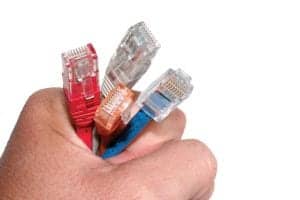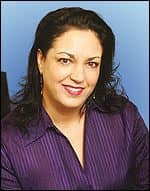Curbell Inc, Orchard Park, NY, first got its start in the early 1960s as a designer and developer of patient controls, called pillow speakers, for operating television sets in hospital patient rooms. Subsequent product offerings include its biomedical product line with its recent offering of its own line of ECG cables and lead wires sold directly to its customers. 24×7 spoke to Vice President of Sales and Marketing Doug Rockwood, Director of Marketing Karen Clemens, and Market Manager Jeni Becker about designing for OEMs and the benefits of disposable lead wires.
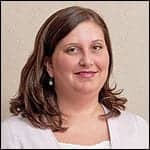
Jeni Becker
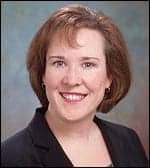
Karen Clemens
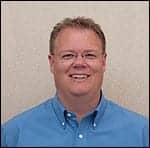
Doug Rockwood
24×7: First, can you explain what pillow speakers are?
Rockwood: It is the wired, handheld device the patient uses to call the nurse and/or access patient entertainment. It’s just the industry name, and it stuck.
24×7: Tell us about your biomedical product line.
Rockwood: The core product in that line is a replacement ECG cable and lead set, both reusable and disposable. It really originated as a result of biomedical engineering having a great deal of familiarity with Curbell in our core product family. To be frank, we didn’t sit around the table and dream up the idea of designing and developing cables and lead sets. It really was a result of listening to the customers’ concerns in regard to getting their hands on a variety of different cable and lead sets. What we didn’t realize was that it would become a core competency of Curbell.
When a typical biomedical engineer asked us the first time if we could locate and supply him with a replacement cable and lead set, we probably said, “Sorry, that’s not our line of business.” The second, third, and fourth time we get asked, that’s really just an opportunity for us to listen to our customers and sniff out an opportunity.
24×7: Can you give us some product specifics about your new lead wires and cables?
Clemens: We have a full line available for all the main monitor manufacturers, including Philips, GE, Spacelabs, Datex-Ohmeda, etc. One of the advantages with Curbell is that essentially we’re a one-stop shop for a variety of cables and leads. Knowing that in a typical hospital it’s not unusual to have multiple monitor brands, Curbell offers the convenience of having a single source, with that established quality that people have come to depend on for over 50 years, at an affordable price. Hospitals, which are already our existing customers, should be able to buy replacement cables and leads direct from the manufacturer.
Rockwood: Reliability and convenience is really the value proposition. Reliability for us is table stakes. As far as brand recognition goes, we would be drastically hurting our brand without a reliable product.
24×7: How long have you been manufacturing lead wires and cables?
Clemens: Two years.
24×7: Why are you just now offering them to hospitals?
Clemens: We’ve really gone though kind of a rebirth and have completed our line. Where before we had parts and pieces, now we have a fully manufactured line.
24×7: How did you get started working with Curbell?
Rockwood: I came to Curbell almost 25 years ago and spent the first couple years of my Curbell life in our sister company, which is an industrial plastics business. The bulk of my time has been spent in our electronics business and growing our business in health care.
Clemens: I joined Curbell 4 years ago. Prior to that, my history has really been in product management for almost 20 years. I came into the Curbell product management team managing our core product line, and moved into the direct marketing position about a year and a half ago. All product managers—we have a team—cover our various product lines, which include our biomedical and our core nurse call line, which is primarily our nurse call and pillow speaker products.
24×7: What products do you design for OEMs?
Rockwood: In our core product family we have become the de facto standard for most, if not all, the nurse call system organizations. In our biomedical product family, we have begun to supply a number of the original equipment manufacturers with some of our biomedical products. Specifically, we’re having the greatest amount of success with our Sure-Lock product.
24×7: How long have you been developing biomedical products for OEMs?
Rockwood: Probably for 4 or 5 years, and there are many more OEMs that we’re currently talking to. It takes a while for companies to incorporate our type of product into their product family.
24×7: How did you get started in that line of business?
Rockwood: As a result of acquiring the technology of the product that today we call Sure-Lock. The product itself is an electrode clip that is designed to ensure the integrity of the connection between lead set and electrode. From our standpoint, it was technology that complemented what we were trying to do with our core product offering in that product family. Many of the original equipment manufacturers either have or are considering incorporating it into their product offering.
24×7: Do OEMs keep the names of the companies who manufacture for them private?
Becker: That’s correct. Our primary business is direct to hospital in the biomedical world, but most of the OEM manufacturing that we supply is private labeled for them. Their customers don’t necessarily know who the manufacturers behind it are. For example, many patient monitor OEMs do not manufacture their own cables. Rather, somebody manufacturers the cables for them, similar to how we manufacture pillow speakers for one of our partners. It’s private labeled for them.
24×7: Why should a facility that is comfortable working with its OEM switch to a non-OEM they aren’t as familiar with for its parts?
Rockwood: In that situation it really boils down to three factors: reliability, convenience, and price. And we can’t have just one. Biomedical engineers fully expect that.
24×7: Tell us about your quality process.
Becker: Unlike a traditional distributor who may get cables from multiple manufacturers or an OEM who may make their own or have it subcontracted, we both sell and manufacture our own, so we’re able to control quality pretty closely.
Rockwood: In order to design and develop and offer this product, Curbell has to have in place all of the regulatory requirements, which is really meeting good manufacturing practices as outlined by the FDA.
24×7: Does this make you more confident in the control process?
Rockwood: Absolutely. That was our reason for designing and developing our own product line.
24×7: Is there anything unique about your quality process that you can speak to?
Becker: With the product itself there are some unique properties that make it higher quality than others on the market. For example, our cables are fully shielded from the monitor through to the connector end. Other cables are only shielded in the cable, not into the molded plugs as well. The pins and connectors we use are solid versus being a rolled piece of metal, so they are less susceptible to bending. You get a better trace and better read when you have that shielding. It’s the fine details of the higher-quality components that we use that make our products different from others supplied to the market.
24×7: What drives the desire for excellence in quality control?
Clemens: I think part of it comes natural to us based on our core business. As an OEM supplier for pillow speakers in our core product line, it’s a requirement to have high-end quality systems that are FDA compliant; we’re also ISO certified. It’s a quality system that we take for granted here at Curbell that not all manufacturers subscribe to.
24×7: Is cross-contamination among lead wires a serious issue?
Clemens: They’re time consuming and difficult to clean based on the complexity of the part.
Rockwood: Many of our customers have told us that although the products are cleaned after each use, how clean the products really end up is really questionable.
24×7: Is the questionable cleanliness a result of reuse or from hospital practices?
Clemens: It’s not either, really. As time has evolved, the microorganisms have gotten stronger and [lead wires] have become much harder to clean and keep clean. Lead wires are lying in a very sensitive area, typically in someone’s chest who has just had heart surgery. Being able to clean every nook and cranny without using a toothbrush becomes a serious issue. Disposables take that issue away. How clean is clean is the question, but the reality is if you use disposable you’ve at least eliminated contamination from the previous patients.
24×7: Do you ever run into the belief that low prices compromise quality? How do you combat that perception?
Rockwood: We’re fortunate in that we manufacture a line of products that can oftentimes be sampled. Sampling is the best way for a facility to try out a product and to see if it really meets its claims. We certainly try to understand the needs of the facility before we invest in sending a sample to that facility. Once we do, we want to make sure the product is actually tried out for an appropriate amount of time.
24×7: Do you try to factor in customer feedback when designing products?
Clemens: That’s really the key role of our product management groups, who are constantly out in the field talking to customers and attending a wide variety of trade shows where we solicit market feedback to improve our products.
Rockwood: The best way to measure that is customer retention. If a customer purchases a product from us once, we’re in trouble. If a customer comes back and purchases the same item, chances are pretty good we’ve delivered on our claims.
24×7: What are the company’s future plans?
Rockwood: We’ll continue to round out the product family—that’s been our primary focus. In order for us to have convenience as a value proposition, we need to make sure our product line is fully rounded.
Clemens: In the hospital market, there seems to be a very large demand for disposable products. While hospitals are used to disposables in other areas, such as SpO2 or cups, we’re now seeing a lot of demand and interest in our disposable lead wire line from an infection control standpoint.
Stephen Noonoo is the associate editor of 24×7. Contact him at .


